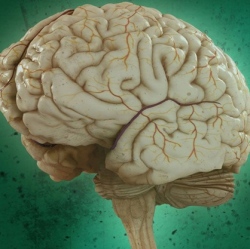
Alzheimer’s disease is a debilitating condition where toxic changes in the brain cause disruptions in memory and reasoning. Although there are several ongoing studies and clinical trials on the condition, an Alzheimer’s cure remains unavailable. But a study could unlock the mystery of a cure.
The study suggests the condition can be prevented by stopping the malfunction of a single protein in the brain, according to research on mice published in Science.
The protein, called tau protein, normally functions as a stabilizer for the microtubules that act as rails for transporting materials around the cell. As New Scientist reported, studies have suggested problems with the tau protein is somehow linked to Alzheimer’s. The protein can clump together in twisted tangles and could be releasing Alzheimer’s-inducing toxic chemicals.
Previously, enzyme therapies were directed toward reducing beta-amyloid mutation but found little success. This development shows greater potential with its effectiveness in animal studies. Ittner also said their study could transition to human use more easily because the models were designed to recreate the relationship of the proteins beta-amyloid and tau in humans.
“I think this is very, very exciting. Our focus has been on beta-amyloid but this gives the tau approach a really good kick,” Ittner said, according to New Scientist.
It could be several more years of research before the study fully transitions into an effective treatment for humans, but more and more scientists are taking steps toward a cure. Studies like this are on track to improve the lives of the estimated 4.4 million people worldwide suffering from Alzheimer’s disease.
